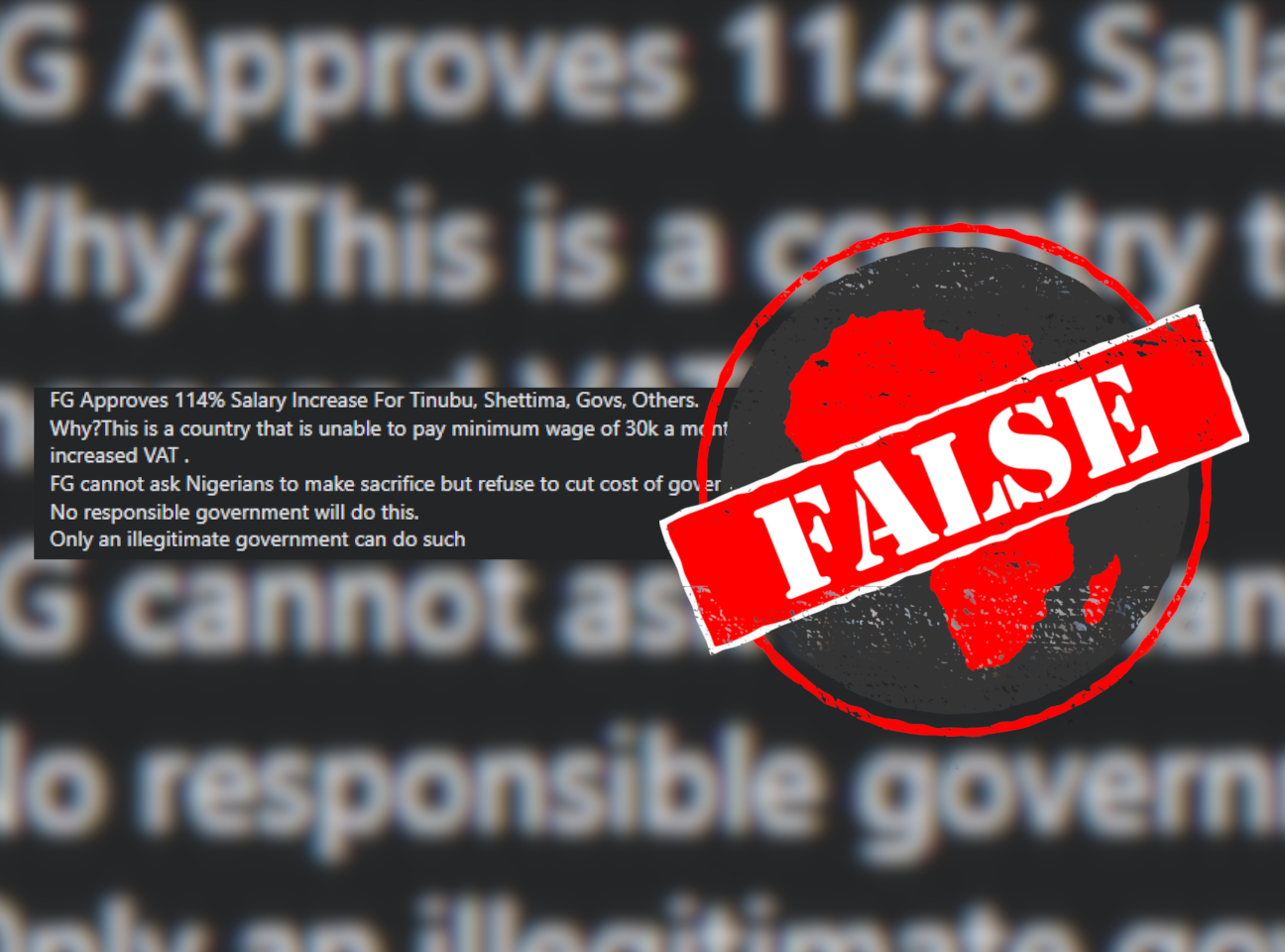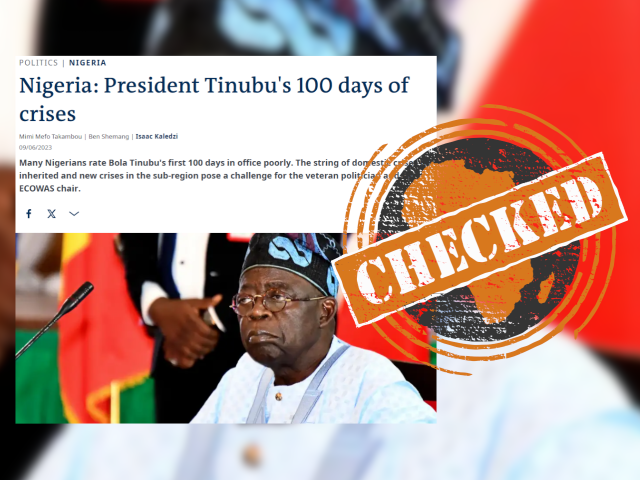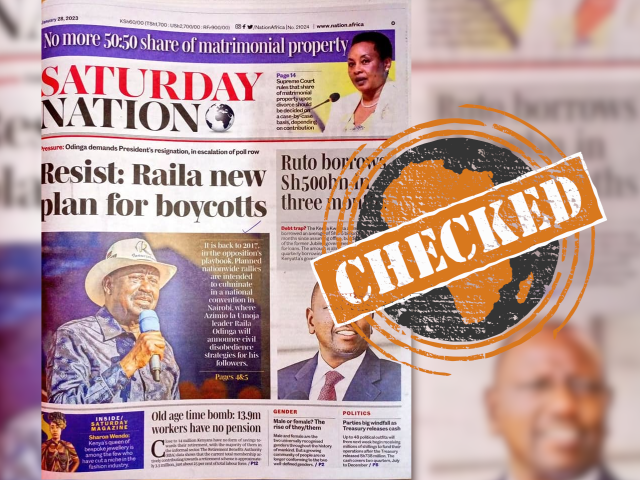IN SHORT: There have been widespread reports in Nigeria in both traditional and social media that a staggering 114% salary increase for public officeholders, including the president and his deputy, has been approved. But this has been denounced by the presidency and the revenue commission.
“FG Approves 114% Salary Increase For Tinubu, Shettima, Govs, Others,” was a breaking news headline in Nigeria on Wednesday 21 June 2023.
It was reported by newspapers and blogs. It was widely shared on Facebook and other social platforms. See examples on Facebook here, here, here, here, here, here, here, here, here, here, here and here.
Many Nigerians, including rights groups, have criticised president Bola Tinubu for increasing his salary and those of public officeholders while minimum wage workers and poor Nigerians are left to face economic hardship, worsened by the controversial removal of the fuel subsidy.
But has the federal government led by Tinubu approved a 114% salary increase for public officeholders?

An incomplete review process
The Revenue Mobilisation, Allocation and Fiscal Commission (RMAFC) is a federal government agency responsible for determining the appropriate pay for the president, vice president, governors, deputy governors, ministers, commissioners, special advisers, legislators and judicial officers.
The commission did propose a 114% salary increase for these public offices after a long review process. This process included public hearings in all six geo-political zones of the country on 1 February 2023.
The remuneration review was last done in 2007, leading to the amendment act of 2008, which has determined the salaries of public officeholders since then.
Sections 84 and 124 of Nigeria’s constitution state that the salaries of the public officeholders at the federal and state levels are prescribed by the lawmakers in the national assembly and state houses of assembly but they must not exceed the amounts determined by the RMAFC.
“There shall be paid to the holders of the offices mentioned in this section such remuneration, salaries and allowances as may be prescribed by the National Assembly, but not exceeding the amount as shall have been determined by the Revenue Mobilisation Allocation and Fiscal Commission,” section 84, subsection 1 of the Nigerian constitution reads.
“There shall be paid to the holders of the offices mentioned in this section such remuneration and salaries as may be prescribed by a House of Assembly, but not exceeding the amount as shall have been determined by the Revenue Mobilisation Allocation and Fiscal Commission,” Section 124, subsection 1 of the Nigerian constitution reads
It was also reported that the commission urged the 36 states’ houses of assembly to “hasten efforts on amendment of relevant laws to give room for upward review of remuneration packages for political, judicial and public officers”.
The presidency debunks the reports
A press statement by Tinubu’s special adviser on special duties, communications and strategy debunked the claim that the 114% salary had been approved by the federal government.
The statement reads:
“We have followed with consternation the viral story of the purported 114% increase in the salary of the President, Vice President, elected Federal and State political office holders and judicial officers. We state without any equivocation that President Bola Tinubu has not approved any salary increase, and no such proposal has been brought before him for consideration.
“While we recognise that it is within the constitutional remit of the Revenue Mobilisation, Allocation and Fiscal Commission (RMAFC) to propose and fix salaries and allowances of political officeholders and Judicial Officers, such cannot come to effect until it has equally been considered and approved by the President.”
The RMAFC has also debunked the rumours. The commission’s spokesperson, Christian Nwachukwu, told journalists that the review process was still underway.
He said when the commission was done it would send its proposal to the national assembly as a bill, and then after it had been debated in the national assembly, it would be sent to the president for assent.
“No approval yet. There is no approval yet. I don’t know the source of that story. Everything is under the process. It has to come as a Bill for Mr President to assent. The President has not given assent. Until the President gives assent, you cannot take it as if it has taken effect,” Nwachukwu said.
Republish our content for free
For publishers: what to do if your post is rated false
A fact-checker has rated your Facebook or Instagram post as “false”, “altered”, “partly false” or “missing context”. This could have serious consequences. What do you do?
Click on our guide for the steps you should follow.
Publishers guideAfrica Check teams up with Facebook
Africa Check is a partner in Meta's third-party fact-checking programme to help stop the spread of false information on social media.
The content we rate as “false” will be downgraded on Facebook and Instagram. This means fewer people will see it.
You can also help identify false information on Facebook. This guide explains how.





Add new comment